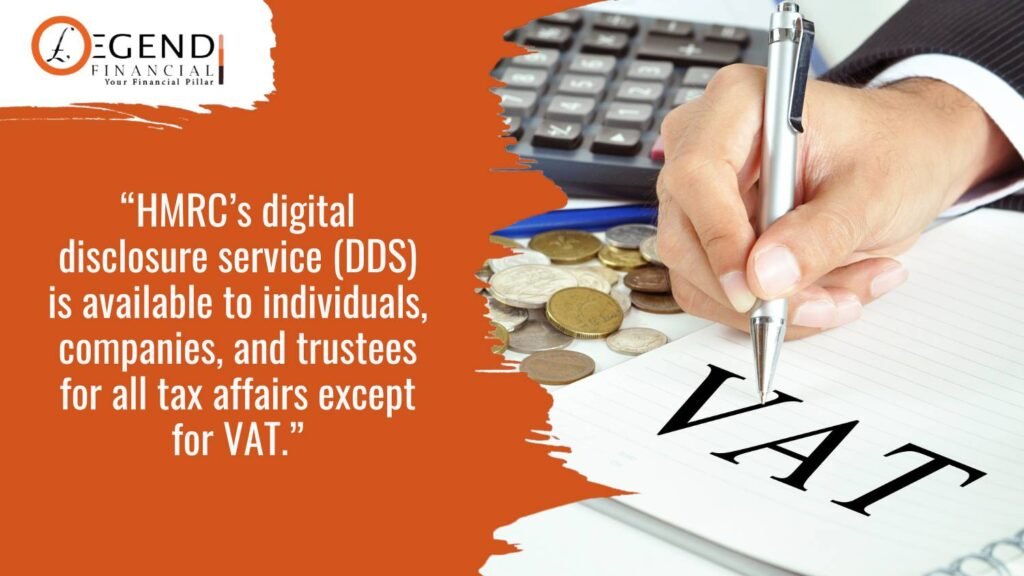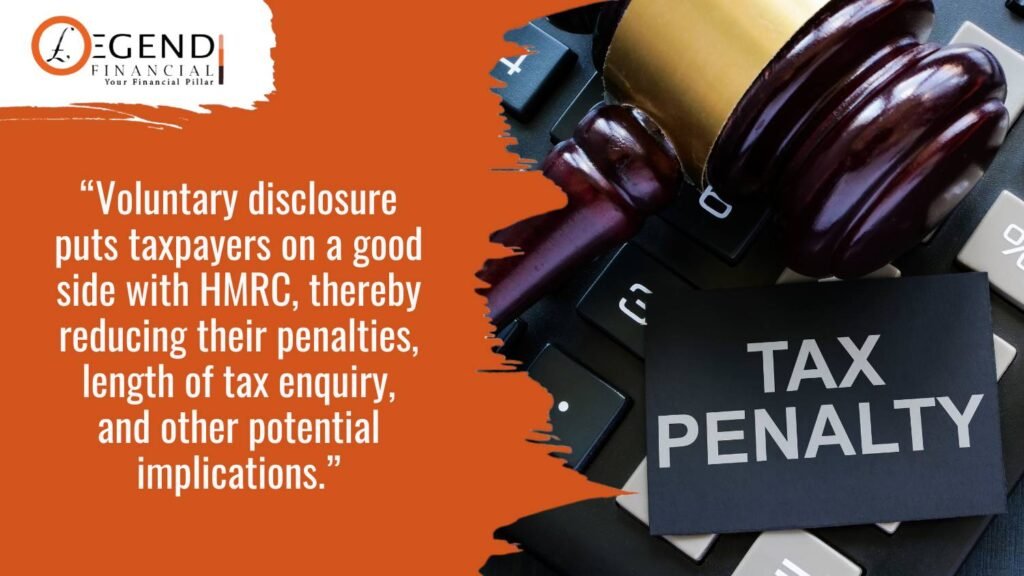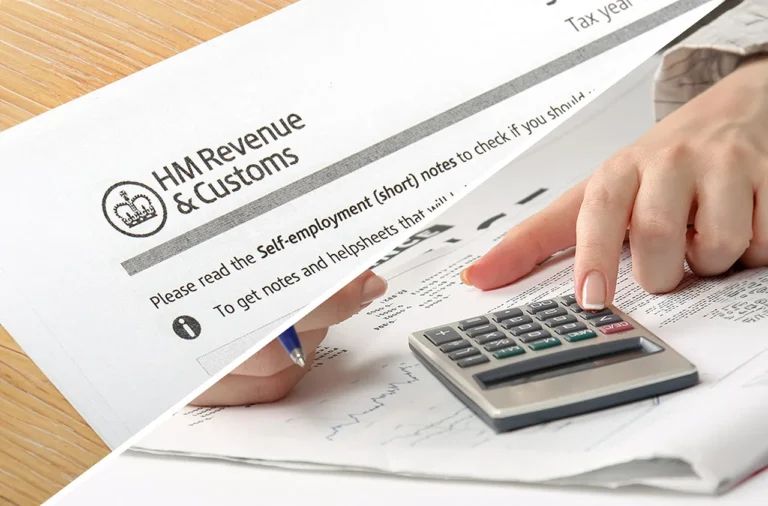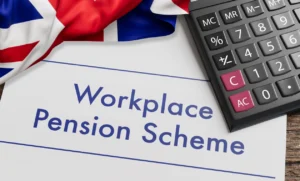Contents
The latest HMRC Digital Disclosure Service (DDS) is accessible to everyone who wants to straighten their tax affairs. This is to encourage all taxpayers to voluntarily disclose their income and tax liabilities.
This article covers the latest digital disclosure service HMRC introduced, including the process of disclosure, penalties, taxpayers’ rights when dealing with the penalties, and other frequently asked questions around the topic.
What Is HMRC Digital Disclosure Service?
HMRC launched the Digital Disclosure Service (DDS) to make voluntary full disclosure available for everyone, regardless of their employment status, cause of non-compliance, or the industry they belong to. This is because other currently open disclosure campaigns are limited to certain targets, such as Let Property Campaign (LPC) which only caters to property owners who earn rental income.
If taxpayers qualify for the Let Property Campaign, they must follow its guidelines. Other campaigns alongside the DDS include the following:
- Contractual Disclosure Facility (CDF) – for deliberate non-disclosure and prevention of further legal actions
- Coronavirus Job Retention Scheme – for employers who overclaimed CJRS grants
This disclosure service HMRC launched as an online platform is accessible to all individuals, businesses, and trustees, giving a fair ground for everyone to sort out their tax liabilities, whether they are prompted by HMRC or not. The Digital Disclosure Service, however, is not available for VAT matters or disclosures of any organised crimes. If it is about VAT fiscal fraud, check out our comprehensive VAT Fraud guide.

When HMRC themselves find any irregularities or errors in the taxpayers’ tax returns, the penalties can be higher, and years looked back for investigations get longer. Voluntary disclosure helps taxpayers effectively avoid these. If the taxpayer is found to have truly erred in their previous tax affairs, voluntary disclosure will help reduce any penalties.
Taxes that can be disclosed or amended via the Digital Disclosure Service are as follows:
- Income Tax
- Corporation Tax
- Capital Gains Tax (CGT)
- National Insurance contributions (NICs)
- Inheritance Tax (IHT)
- Annual Tax for Enveloped Dwellings (ATED)
Why Make a Voluntary Disclosure to HMRC?
HMRC has a lot of cues and tip-offs. Their connect computer system is also excellent at absorbing and collating information from all sources, including financial records, Companies House details, and more. However, they may not know everything immediately.
Voluntarily disclosing incomes or potential tax return errors will spare the taxpayer possible rigorous tax compliance checks once the latter finally gets into their tax affairs. Fortunately, HMRC’s digital disclosure service is available for both who received ‘nudge letters’ or not.

Penalties are lower when taxpayers voluntarily take part in one of the disclosure campaigns, as they position themselves on a good side with HMRC. HMRC also incentivises taxpayers’ voluntary disclosures by investigating into their affairs more simply than those who do not take part in the process or ignore the nudge letter.
For the taxpayer, finally being able to sort out their tax affairs gives them peace of mind, as they do not have to worry about being caught in another future suspicion. For those who were shown to have been deliberately non-compliant or fraudulent, voluntary disclosure will also keep them out of being publicly announced by HMRC.
What Are the Steps for HMRC Voluntary Disclosure?
Here are how individuals and businesses can take part in the digital disclosure campaign:
Registration
To notify HMRC that they are about to make a disclosure, taxpayers must head to HMRC’s Digital Disclosure Service page and provide all necessary details and documents. If uncertain about what to disclose, taxpayers may contact HMRC helpline or tax experts before making a disclosure.
Afterward, HMRC provides the unique Disclosure Reference Number (DRN) and Payment Reference Number (PRN). At this stage, taxpayers only declare their intent to disclose. They are not yet required to provide details of any undisclosed income or tax owed.
Disclosure
After HMRC acknowledges the disclosure application, the taxpayer will have 90 days to complete all necessary information, including the disclosure and calculations.
Calculation
The calculation depends on the taxpayers’ situation. If it involves more previous tax years and other complicating factors, it is highly advised to seek help from tax experts. For each tax liability, they can use our calculators below:
To ensure accurate tax payments, our experts will need to do further checks. Disclosing additional incomes, the taxpayer must include all the other income sources, such as PAYE, as income tax is not due unless their total taxable earnings go above the tax-free personal allowance.
Formal Offer
Once income tax returns, penalties and interest, and all the other bill calculations are done, the taxpayer must submit a formal full disclosure. This completes the disclosure process, and HMRC will be checking all information and documents.
Payment
The Payment Reference Number (PRN) is needed at this stage. Various payment methods are available, including debit/credit card, cheque, and more. Unless the taxpayer agrees to a time-to-pay arrangement (TTP) with HMRC, the payment must be made within the disclosure period.
What Are the Penalties for Failing to Disclose?
HMRC imposes fines according to various factors, including the nature of the behaviour, voluntary disclosure, and the quality of the disclosure made. If the taxpayers were found to have been careless, penalties may extend up to six years. Deliberate actions to mislead HMRC can result in penalties for up to 20 years.

Interest charges are also applicable on overdue tax payments, calculated daily from the due date until the payment date. Penalties vary from one individual circumstance to another, but they generally become lower when the taxpayer voluntarily discloses, and more so, if they are very cooperative with HMRC throughout the process.
Frequently Asked Questions
The time limits depend on the taxpayer’s level of care. If the taxpayer has taken reasonable care to submit a correct return, the time limit is 4 years; reasonable care, 6 years; failure to notify liability or deliberately understated a tax bill, 20 years.
There are no strict rules on how to maintain records for as long as they are accurate, complete, and readable enough to avoid HMRC penalties. They can be kept in paper format, digitally, or using relevant software.
The maximum penalty percentage is 30%. Unprompted disclosures may be at 0%; prompted disclosures at 15%.
HMRC’s voluntary disclosure helpline is +44(0)300 1231078. Taxpayers may also send a letter to these addresses: Individual and Small Business Compliance Campaigns, HM Revenue & Customs, Voluntary Disclosure Team S0790, NE98 1ZZ, or Newcastle upon Tyne.
Why Legend Financial for Your Tax Affairs?
Using the HMRC digital disclosure service is one surefire way to settle any tax irregularities without attracting considerably higher penalties, or at all. Legend Financial is here to make your disclosure as accurate as possible so you do not pay unnecessary tax, penalties, or interest.
If you qualify for other currently open HMRC disclosure campaigns, we will also assist. Overall, we aim to reduce your tax liabilities in every way. Talk to one of our tax experts today!












